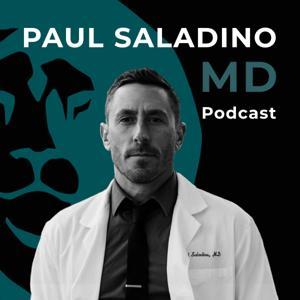📢 Ask Dr. Bikman’s Digital Mind (multilingual): https://benbikman.com/ben-bikmans-digital-ai-mind
📢 Dr. Bikman’s Community & Coaching Site: https://insuliniq.com
Topic:
Exercise prompts your muscles to release extracellular vesicles — tiny molecular packages that deliver health-boosting instructions to your brain, liver, fat, and more. These signals improve metabolism, reduce inflammation, and may even help reverse insulin resistance and obesity-related damage.
Summary:
Dr. Ben Bikman explains how extracellular vesicles (ECVs) — tiny biological packages released by cells — are revolutionizing our understanding of how exercise improves metabolic health. These vesicles act like molecular mail, delivering proteins, lipids, and microRNAs from one tissue to another, with effects that include improved insulin sensitivity, enhanced fat burning, and reduced inflammation.
When we exercise, our muscles and other tissues release more ECVs, which travel throughout the body delivering beneficial molecular signals to organs like the liver, brain, fat cells, and immune system. Different types of exercise (aerobic vs. resistance) and different intensities produce ECVs with distinct “cargo,” which helps explain the diverse benefits of various workout styles.
In conditions like obesity and type 2 diabetes, however, the story shifts. Dysfunctional tissues release harmful ECVs that can spread metabolic disease. Fortunately, exercise helps reverse this, replacing harmful signals with beneficial ones. Even brief bouts of exercise can shift this internal “conversation” in a healthier direction.
Ben closes by highlighting the future potential of ECV research: personalized exercise prescriptions, new biomarkers, and even therapeutic applications like “exercise in a bottle.” But until then, the takeaway is clear: exercise isn’t just about movement — it’s a system-wide signal for better health.
References:
For complete show notes and references, we invite you to become an Insider subscriber. You’ll enjoy real-time, livestream Metabolic Classroom access which includes live Q&A with Ben after the lecture, unlimited access to Dr. Bikman’s Digital Mind, ad-free podcast episodes, show notes and references, and Ben’s Weekly Research Review Podcast. Learn more: https://www.benbikman.com
NOTE: The information presented is not intended to be a substitute for professional medical advice, diagnosis, or treatment. Dr. Bikman is not a clinician—and, he is not your doctor. Always seek the advice of your own qualified health providers with questions you may have regarding medical conditions.
#MetabolicHealth #ExtracellularVesicles #ExerciseScience #InsulinResistance #MolecularHealth #DrBenBikman #MuscleHealth #CellCommunication #MetabolismMatters #FatBurning #BrownFat #microRNA #FitnessScience #HormoneHealth #HealthyLiving #BloodSugarBalance #ResistanceTraining #AerobicExercise #MetabolicTherapy #SystemicHealth
Ben’s favorite yerba mate and fiber: https://ufeelgreat.com/usa/en/c/1BA884
Exogenous ketones: A high-quality option is the NSF-certified goBHB from Clean Form Nutrition, where you can use the code BEN10 for a 10% discount: https://cleanformnutrition.com/products/go-bhb
Ben’s favorite meal-replacement shake: https://gethlth.com (discount: BEN10)
Ben’s favorite health check-up for men: https://blokes.co/drben15 (discount: DRBEN15)
Hosted on Acast. See acast.com/privacy for more information.




































